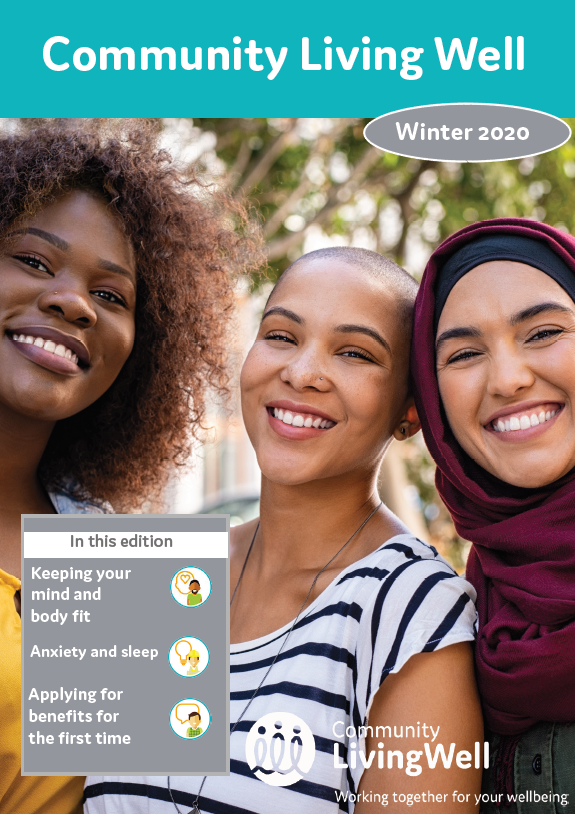Latest News
Spring/Summer 2020 Magazine is now available!
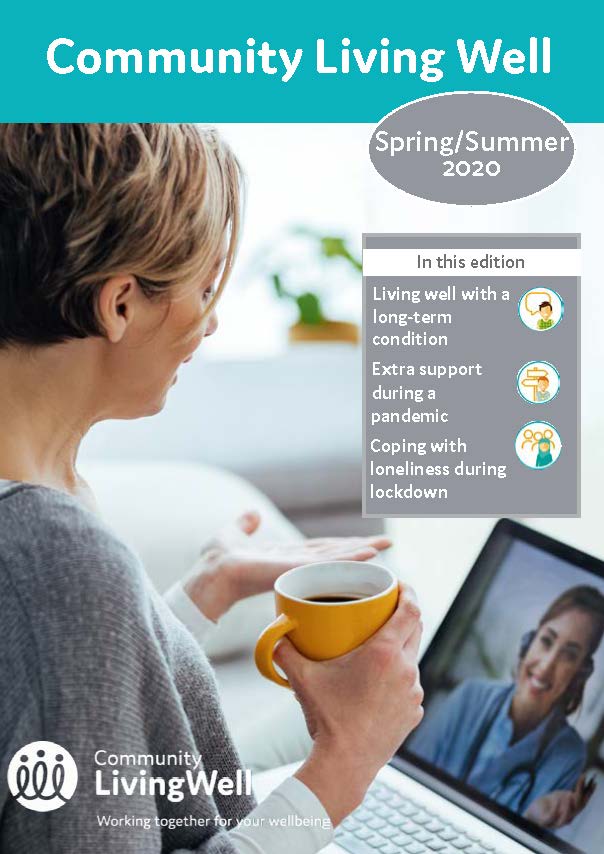
A very warm welcome to the Spring/Summer Edition 2020 of the Community Living Well magazine. We hope you’re staying safe and staying well.
The coronavirus (Covid-19) pandemic has impacted our lives in many ways. From lockdown and not being able to see our family and friends, anxieties around whether or not we’re safe and following Government guidance to a change in the economy impacting employment. Adjusting to the ‘new normal’ is a lot to navigate.
This magazine is dedicated to providing you with useful advice, support and hyperlinks to help you through the coronavirus pandemic. We hope that you’ll find this resource useful and you’ll feel informed, inspired and uplifted.
Since the pandemic, each of our services have had to look at new ways of working so they can continue to provide our service users with support. Information on our service changes are included in the magazine.
You’ll also find information on how to look after your mental health and manage stress and anxiety. If you’ve been furloughed or need advice on what support you may be entitled to, our Navigators and Employment team have put together some helpful information.
Remember you are not alone and that it is okay to ask for help and support if you need it.
PLUS…
From coping with loneliness during isolation, to living well with a long-term health condition during lockdown, the Spring/Summer Edition is filled with content that aims to help you on your quest to improve your mental health and wellbeing especially during these strange times.
As always, this magazine is about you – your thoughts, ideas, concerns and achievements. If you have any suggestions, features or stories you think we should include, please contact me, Michelle, on [email protected].
Take care and stay safe.
Community Living Well is a mental health service for those registered with a GP in the Royal Borough of Kensington and Chelsea, or the Queen’s Park and Paddington areas of Westminster. The services on offer include talking therapies, support groups, help with employment and support with debt, housing and benefits issues. Self-referrals can be made here. For more information please call 020 3317 4200.
Author: Michelle Jackson
Category: Community Living Well
Posted on: 1st June 2020
Support during the Coronavirus outbreak
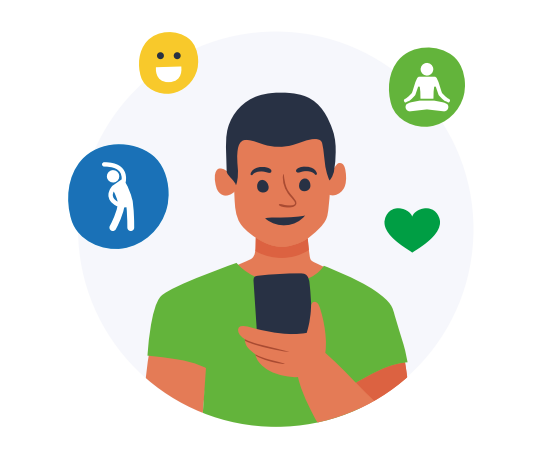
During the coronavirus outbreak we are here to provide support for those who are self-isolating or anxious about the impact of the virus on themselves and their families and loved ones.
Here are some helpful things you can do to help you manage during this difficult time.
Make a schedule
Keeping a routine can be a really useful way to stay active, and have control over your day. Think about writing up a timetable to put on the wall, and write out what activities you will do throughout the day. It’s important to include things that will be enjoyable, calming, as well as productive.
Keeping healthy
Take care of your basic needs; get rest and eat healthily. Remember, exercise is good for your physical health, and it can also boost your mood. You can still go outside for one form of exercise, just remember to practice social distancing and keep 2 metres apart.
Finding calm
It may be useful to write down all the questions you have, and look for the answers from reliable sources such as the NHS and Gov.uk. Finding things that are comforting to us can help with being calm and relaxed. You can find free phone apps and tools such as Calm which helps with relaxation, or Chill Panda relaxation for children, MeeTwo, a safe space for teenagers to share, and Every Mind Matters for adults.
A positive note
It’s important to remember that there is hope and people are getting together at difficult times to support each other. End your day on a positive note, by spending a few minutes before bedtime to tell each other in person, by phone or even write in a journal something positive that happened in the day – or something positive you hope will happen in future.
Our Talking Therapies team are here to help with problems such as stress, anxiety, depression and insomnia, and we will continue to accept referrals and offer support. We are providing brief focused interventions to people by telephone or video call and the option of online treatments. If you would like to refer to the service, please complete the self-referral form.
This resource was originally published by Central North West London NHS. Download the resource here. This document is also available in other languages, large print, Braille, and audio format upon request. Please email [email protected]
Author: Michelle Jackson
Category: Community Living Well, Talking Therapies
Posted on: 19th May 2020
New online workshops for COVID-19 support
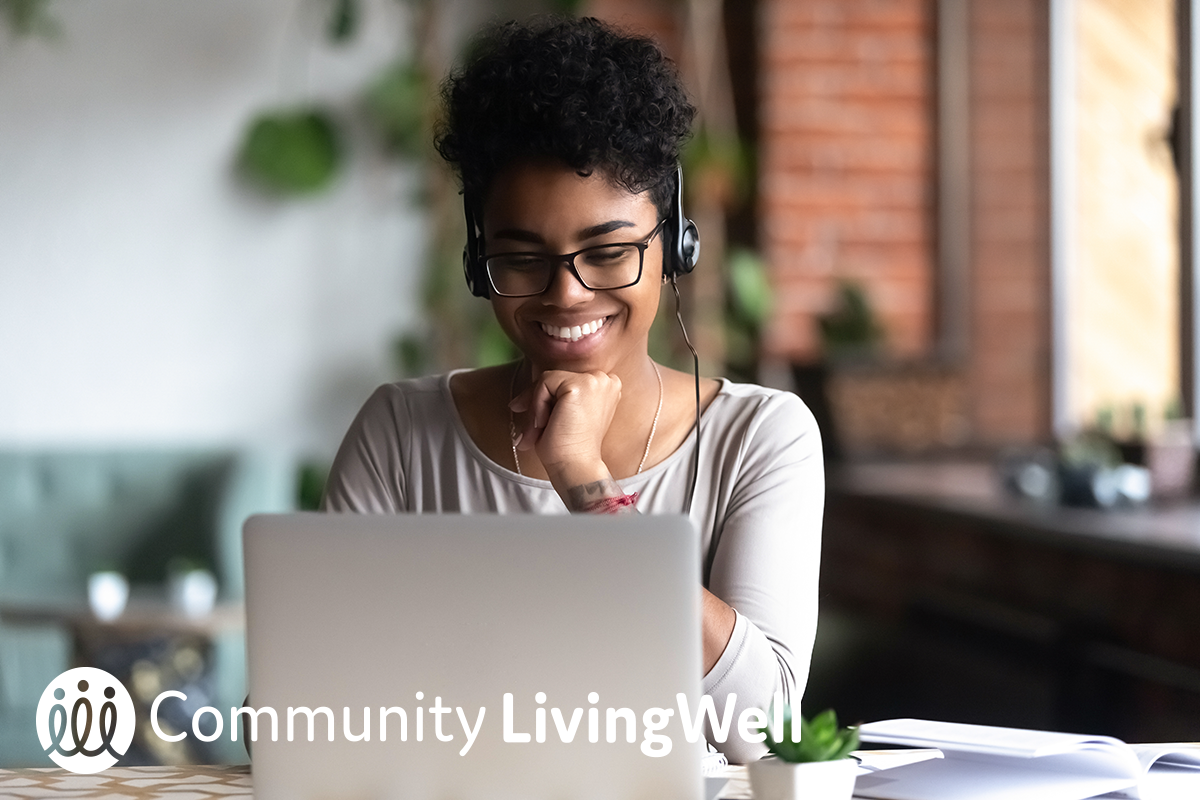
We are offering free one-hour online workshops addressing a range of concerns during COVID-19. These workshops are based on Cognitive Behaviour Therapy (CBT), an evidence based therapy used widely in the NHS, and there will be discussions on how to face difficulties with lockdown in a practical way. It’s an opportunity for you to meet others with similar experiences to you and discover that you are not alone and you can share as much or as little as you would like. There are opportunities for you to ask questions throughout the online workshops and points where verbal discussion will be invited. Here are the topics that are currently available: |
|
|
|
|
Author: Michelle Jackson
Category: Community Living Well, Talking Therapies
Posted on: 22nd April 2020
Service updates due to COVID-19
To align with the Government’s current guidelines, we’re temporarily changing the way we deliver our services. We will continue to process new referrals and support current service users during this difficult time.
We won’t be providing face-to-face appointments, groups and activities. Each of our services have had to look at new ways of working so they can continue to support you. You can find the different service changes below.
Talking Therapies
Talking Therapies will offer focused support to people by telephone or video call and they can offer online treatments. They are also offering support to NHS staff affected by Covid-19.
There will also be virtual groups and webinars available and our website will be updated with more information as it becomes available. Find out more about CNWL’s Talking Therapies on their website.
Peer Support
Peer Support services will be provided under one umbrella with other Kensington and Chelsea Mind services. They will be offering:
- Regular support by phone, email or text
- Support to assess the level of practical support you may need during this time
- Support to create a Mind Wellbeing Plan to help you cope at home
- Emotional support and regular tips and information on how to look after your mental health and,
- Information and support to help you access other services
If you have any questions, please get in touch on 020 8964 1333 or email [email protected]
Primary Care Liaison Nurses
Primary Care Liaison Nurses will provide telephone consultations and face-to-face appointments using online platforms such as Zoom. You may experience a longer than usual wait time for your first contact as the team experience some disruptions to their service. Some individuals may find that they are offered support as an alternative to seeing the Community Mental Health teams, and there may be times when you are directed to other support services that can better meet your needs.
If you need more information on medication, there are reliable medication resources on the Central and North West London website.
Employment Service
The Employment Team are still accepting referrals and all of their work is being done over the phone.
They will also provide one-off advice, guidance and signposting for those who would like some information on their current employment situation.
Please note – there is a waiting list for these services.
Navigation Service
The Navigators Team are still accepting referrals and all of their work is being done over the phone.
They can also signpost people who would not be eligible for their services, but need some support with finding out the most up to date and relevant information for them.
This is not an emergency or crisis service and they operate with a waiting list. They will be in touch with you as soon as they can.
SMART
SMART are offering a food delivery service for people with primary or secondary mental health needs, who are self-isolating or unable to get to a food bank. If you require this service, please self-refer to the Navigator service and write I would like a referral to SMART food delivery in the ‘tell us about the issues you need help and support with’ box. A member of the team will contact you by phone to get more information and to check your eligibility.
Self-Care Services
Changes to the delivery of the self-care services are outlined below:
- Clement James Wellbeing Project – Activities, groups and learning sessions will continue however they will be delivered through phone calls, video and online sessions
- Well Read – Play reading sessions will be offered online through Zoom on Tuesdays and Fridays
- Emotional 1:1 support in your language – This service will be provided over the phone
- Massage and Reflexology – This service won’t be offered in the meantime however you can register to have the team call you to check in with you or your neighbour
- Volunteering on Prescription are currently not taking more clients through this scheme but you can volunteer to help during Covid-19 by filling in a form on the Volunteer Centre Kensington and Chelsea website
- My Recipe My Story are supporting existing clients but you can register your interest for when things are back up and running
If you would like to register for the above services, please complete the referral form.
Helpful resources
Coronavirus and your wellbeing
Mind have put together a useful resource to help your wellbeing during this difficult time. This information is to help you cope if:
- you’re feeling anxious or worried about coronavirus
- you’re staying at home and avoiding public places, following Government advice that we should stay at home as much as possible
- you are self-isolating because you, or someone you live with, has symptoms of coronavirus. Self-isolating means that you stay home and keep away from other people.
- For more information, visit the Mind website.
Single Point of Access
If your mental health deteriorates or if you experience any thoughts of suicide or self-harm, please contact the CNWL Single Point of Access Crisis Team on 0800 0234 650 or the Samaritans for free on 116 123.
Refer to the Community Living Well service here.
Author: Michelle Jackson
Category: Community Living Well
Posted on: 6th April 2020
COVID-19 Information and Guidance
The West London Clinical Commissioning Group have issued the following COVID-19 information and guidance.
Visit WWW.GOV.UK
For up-to-date information on Coronavirus symptoms and guidance and what this means for you, your family and friends.
Key messages
- Only go outside for food, health reasons or essential work
- Stay 2 metres (6ft) away from other people
- Wash your hands as soon as you get home
- Sign up to be an NHS Volunteer: www.goodsamapp.org/NHS
Keep checking the GOV.UK website as information changes
Live in Kensington and Chelsea?
Check your local Council’s website and search Coronavirus for the latest information on what’s happening in the borough.
If you’re a resident and would like to help support a community response, visit www.voluntarywork.org.uk for more information and to register as a volunteer.
Local voluntary sector organisations can visit kcsc.org.uk for further support and guidance.
Live in Westminster?
Check your local Council’s website for regular updates on what’s happening in your area.
Visit onewestminster.org.uk to find out about local volunteer opportunities and the support available for voluntary sector organisations.
Helpful resources
- Doctorsoftheworld.org.uk for COVID-19 information in different languages
- Mencap.org.uk for COVID-19 information in an easy to read format
- Mind.org.uk for tips, guidance and information on how to look after your mental health
- Healthwatchcwl.co.uk for COVID-19 support pack and signposting
Author: Michelle Jackson
Category: Community Living Well
Posted on: 26th March 2020
Food and Mood: how diet affects your mental health
We often link our diet and what we eat to our physical health, but did you know that it also affects your mental health and wellbeing?
Having a healthy, balanced diet rich in protein, nutrients and vegetables could be the key to raising energy levels, improving your ability to concentrate and focus, bettering digestion and releasing amino acids, the chemicals your brain needs to regulate your thoughts and feelings.
By incorporating some or all of these tips into your diet, you may find an improvement to your mood, mental health and wellbeing.
Eating regularly
If you’re not eating regularly, you may find your blood sugar level drops. This can cause you to feel tired, irritable and depressed. Eating regularly and choosing foods that release energy slowly, such as pasta, rice and oats, will help to keep your sugar levels steady.
Staying hydrated
If you don’t drink enoiugh fluids, you may find it difficult to concentrate or think clearly. This may also affect your bowels, which puts no one in a good mood. Drink the recommended six to eight glasses of fluids a day. Water is the best option but tea, coffee and smoothies also count as an intake. Be mindful though that these contain caffeine and sugar!
Looking after your gut
Research has shown that your gut reflects how you are feeling emotionally. Your gut slows down or speeds up if you’re stressed or anxious. For healthy digestion, you need to have plenty of fiber and fluid and you need to exercise regularly. Healthy gut foods include fruits, vegetables and whole grains.
Managing caffeine
Caffeine is a stimulant which means it will give you a big burst of energy but it may make you feel anxious and depressed, disturb your sleep (especially if you have it before bed), or give you withdrawal symptoms if you stop suddenly. Try limiting the amount of caffeine you have a day or avoid it altogether and you might find you feel noticeably better.
Getting your five-a-day
Vegetables and fruit contain a lot of the minerals, vitamins and fibre we need to keep us physically and mentally healthy. Eating a variety of different coloured fruits and vegetables every day means you’ll get a good range of nutrients. Fresh, frozen, tinned, dried and juiced (one glass) fruits and vegetables all count towards your five-a-day.
Getting enough protein
Protein is important as it contains amino acids which make up the chemicals your brain needs to regulate your thoughts and feelings. It also helps keep you feeling fuller for longer. You can find protein in lean meat, fish, eggs, cheese and legumes (peas, beans and lentils).
Eating the right fats
Rather than avoiding all fats, it’s important to eat the rights ones. Your brain needs fatty acids such as omega-3 or -6 to keep it working well. You can find healthy fats in oily fish, poultry, avocados and eggs.
There are many ways that foods can affect how we feel, just as how we feel has an influence on what foods we choose. Some of the food/mood effects are due to nutrient content, but a lot of effects are due to existing associations of foods with pleasure and reward (chocolate) or diet and deprivation (plain foods).
This story was originally published in the Winter 2020 Community Living Well magazine. It has been edited for website purposes. Subscribe today to receive mental health and wellbeing tips straight to your inbox, four times a year!
Refer to the Community Living Well service here.
Author: Michelle Jackson
Category: Community Living Well
Posted on: 12th March 2020
Help us shape your mental health services
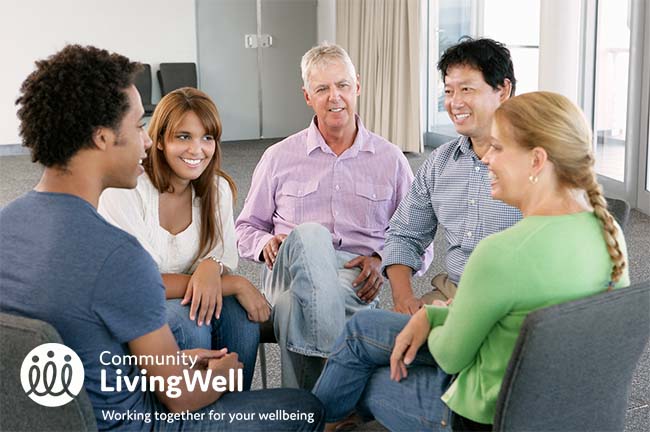
Want to help review and shape your mental health services in your community of Kensington & Chelsea and Queen’s Park & Paddington?
We are committed to collaborating on shaping the future of mental health services in our community and would value your involvement.
You’ll be compensated for the time that you can contribute to this project.
What is it?
West London Clinical Commissioning Group, Central North West London NHS Trust and The Royal Borough of Kensington & Chelsea Local Authority are looking for service users, carers, friends and family to get involved in collaboratively working together to re-shape your mental health services in our local community of Kensington & Chelsea and Queens Park and Paddington. This covers health and social care services that are in your local area.
A workshop and refreshment session to introduce people who are interested to the Integration Programme will be held next week. Here are the details:
Date: Friday 20 March 2020
Time: 1.30pm to 4.00pm
Venue: Bay 20, 71 St Marks Road, London W10 6JG
How can I help?
Groups are scheduled to take place and will meet on a regular basis at a place that is local in Kensington & Chelsea and the Queen’s Park & Paddington area.
How do I get involved?
If you’d like to get involved, or if you want more information about the work we’re doing, then we would love to hear from you. Get in touch to find out more:
Phone: 020 3317 4328
Email: [email protected]
Author: Michelle Jackson
Category: Community Living Well
Posted on: 10th March 2020
Talking to Matt Waters from the West London CCG
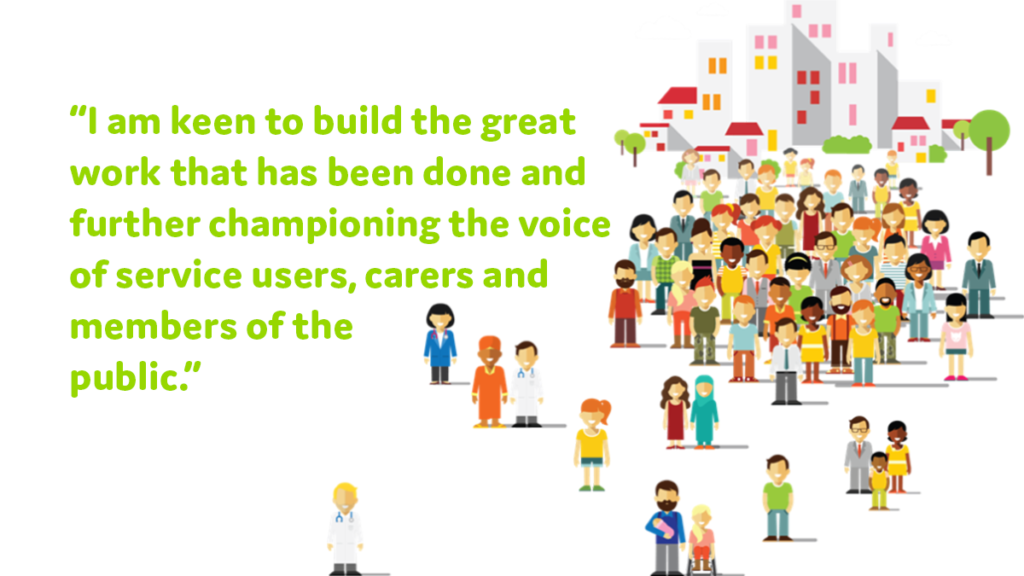
West London Clinical Commissioning Group (CCG) is responsible for planning and buying health services for people registered with a GP in Kensington & Chelsea and Queens Park and Paddington. The organisation is made up of GP and health professional members.
The West London CCG not only commissions Community Living Well (CLW); they also work with CLW providers to ensure you have coordinated access to mental and physical health care and social wellbeing support.
We spoke to West London CCG’s Mental Health Delivery Manager, Matt Waters, who joined us last year in July, about his role and what is on the horizon for CLW and the CCG.
How did you get involved with CLW?
The opportunity came up and I was really interested as I felt that CLW promoted the ethos of integrated and collaborative approaches that I had previous experience of and wanted to develop further. I was especially keen to work in, and develop, NHS services because I feel it is a great institution that everyone in the UK should be proud of but we must also recognise that it can’t always do everything and be all things to everyone. To meet the needs of people in our local communities, it’s important to work with partners in the Voluntary Sector and Social care to develop holistic, wrap around services for service users and carers.
What does your role entail?
I’m responsible for managing the contracts and relationships with our Voluntary Sector partners who work within the Community Living Well network. I also look at the performance of the services and review the quality of what is delivered to ensure that the needs of the local communities are being met and considered whilst making sure that NHS resources and public money is being used appropriately and in the most effective way.
Have you always worked in the mental health sector?
I’ve worked in the mental health sector for a number of years now, both in inpatient settings and the community. I started my professional life as a Mental Health and Mental Capacity advocate in North West England. From there I worked in secure Forensic hospitals as well as general adult services as part of the respective psychology and medical teams. I’ve had the opportunity to work with some amazing professionals and service users who I have learnt a lot from that I feel has benefitted my practice.
What do you hope to achieve during your time here?
I want to gain a better insight into what the communities we serve actually need and want. I am keen to build on the great work that has been done and further championing the voice of service users, carers and members of the public to ensure that we continue to develop and deliver the best quality services that we can.
What do you enjoy about working for CLW?
Working in CLW is a great opportunity to work with a variety of people and professionals in order to come together and ensure that we design and deliver the services that our local communities actually want and need. I like that all staff, service users, carers or members of the public are considered and given a voice to represent their views which can be a challenge but, ensures that CLW continues to evolve and we have to think about different and innovative ways of working.
What is on the horizon for CLW?
The main development for CLW in the immediate future is about how we can make sure that mental health services provided by both CLW and the Community Mental Health Teams can work together in a more joined up way to ensure that people get the support they need. This goes hand in hand with the setting up of what are called ‘Primary Care Networks’ (PCN). In line with the NHS’ long term plan, PCNs will pull together groups of GP practices in the area, covering populations of 30-50,000, who will work together to improve the health of their population.
CLW has already pioneered a more joined up approach to services but we are looking forward to working more closely with local GPs through the PCNs to further develop these pathways and to improve the experience of people accessing mental health services. We want to do this together with people from our local communities so please make sure to keep aware of any opportunities that are coming up to contribute to these developments or you can speak to your GP to find out more.
This story was originally published in the Winter 2020 Community Living Well magazine. It has been edited for website purposes. Subscribe today to receive mental health and wellbeing tips straight to your inbox, four times a year!
Refer to the Community Living Well service here.
Find out more about the West London Clinical Commissioning Group.
Author: Michelle Jackson
Category: Community Living Well
Posted on: 18th February 2020
Returning to work after sick leave

Two-thirds of us will have suffered from some form of mental illness at some point in our lives. It can be even more devastating when it forces us to take a lengthy absence from work. However, once we are on the right road to recovery, going back to work is often one of the most important factors in speeding up our return to full health. It provides us with a support network and is an opportunity to regain our sense of self-esteem and puts some routine and stability back into our lives. Here are some tips on how to transition seamlessly back into the workplace.
Stay in touch
If you can, keep in touch with a trusted colleague while you’re off sick, or when you’re about to return. They can keep you abreast of things like door codes changing, if the stationary cupboard has moved etc, that your manager might overlook, and can help you feel at home in the office. You can also arrange a ‘drop in to work’ before your return to say hello to colleagues and get re-familiarised.
Speak to your GP
Before returning to work, speak to your GP as they might have recommendations to make for your return to work, such as:
- a phased return (not immediately returning to your full working hours or duties)
- flexible hours
- reasonable adjustments, such as recommending specialist equipment to help support you while you’re at work
Be honest
If you’re struggling, be honest! Let your employer or colleagues know if you need extra support. Please remember though that it’s up to you how much or how little you’d like to tell your colleagues about why you’ve been off work. Don’t feel pressured into sharing more than you feel comfortable with.
Prepare
There’s nothing worst than being late and feeling rushed on your first day back at work. If you can, lay out your outfit and items that you will need such as lunch, the night before. This will help ensure your morning goes as smoothly as possible. It could also leave you with extra time in the morning to allow for any unexpected delays or cancellations.
Looking for a job?
If you’ve had to leave your last job due to a mental illness and are now ready to return to work, here are some tips to help you with your job-seeking journey
Think ‘transferable’
Think about your transferable skills. Sometimes it might help to talk through the person specification for a job with a friend – you might be a better match for a role than you think! There are some skills which are invaluable regardless of the role, such as, time management, communication skills, the ability to work alone and as part of a team, and being able to prioritise tasks.
Ask questions during the interview
Although it can be tempting to ask about salary or promotion opportunities, the interview isn’t the best time to ask these questions. Instead, ask questions that will demonstrate a genuine interest in thse company, for example, ask the panel what they enjoy about working at the company.
Identifying gaps in your skills and experience
Do this by looking at the job descriptions and person specifications of roles you are interested in and see what areas you may need to work on. You could “fill in the gaps” by volunteering or completing a short course
Consider “flexible working”
More and more companies are offering “flexible working” and “working from home” as the way we work changes. Don’t be afraid to ask questions about what this really means, as it can differ greatly from company to company.
Network!
Sometimes it’s not about what you know but who you know. Make an effort to get to know people and attend events to keep updated of industry happenings to get your foot in the door.
This story was originally published in the Winter 2020 Community Living Well magazine. It has been edited for website purposes. Subscribe today to receive mental health and wellbeing tips straight to your inbox, four times a year!
Refer to the Community Living Well service here.
Author: Michelle Jackson
Category: Community Living Well, Employment
Posted on: 11th February 2020
The Winter 2020 Magazine is now available!
A very warm welcome to the Winter 2020 edition of the Community Living Well magazine (and excitingly the first one of the year and decade).
As we navigate our way through the shorter, colder winter days, you may feel a dip in your mood. It’s normal for us to feel down in winter. But if you find that it’s recurrent every winter, then you may have seasonal affective disorder. We have a special feature on seasonal affective disorder covering what it is, what the symptoms are and when to seek help.
We want you to remember that it’s okay to ask for help and support when you’re not okay. My hope is that when you finish reading this edition, you’re left feeling informed, uplifted, inspired and understood.
Plus…
From food and mood, sleep and anxiety to a focus on men’s mental health. The Winter 2020 edition is filled with content that aims to help you on your quest to improve your mental health and wellbeing. You’ll also have the opportunity to meet Matt Waters from the West London Clinical Commissioning Group (CCG) where he talks to us about the role the CCG plays in Community Living Well, his background and what’s on the horizon.
We want you to remember that it’s okay to ask for help and support when you’re not okay. My hope is that when you finish reading this edition, you’re left feeling informed, uplifted, inspired and understood.
As always, this magazine is about you – your thoughts, ideas, concerns and achievements. If you have any suggestions, features or stories you think we should include, please contact me, Michelle, on [email protected].
Community Living Well is a mental health service for those registered with a GP in the Royal Borough of Kensington and Chelsea, or the Queen’s Park and Paddington areas of Westminster. The services on offer include talking therapies, support groups, help with employment and support with debt, housing and benefits issues. Self-referrals can be made here. For more information please call 020 3317 4200.
Author: Michelle Jackson
Category: Community Living Well
Posted on: 5th February 2020


